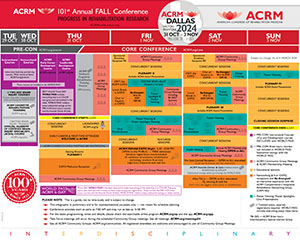Angela Smith, MA
Senior Research Coordinator
Kessler Foundation
BIOGRAPHICAL SKETCH
NAME
Angela A. Smith, M.A. POSITION TITLE
Senior Research Coordinator,
Center for Neuropsychology and Neuroscience Research, Kessler Foundation
eRA COMMONS USER NAME (credential, e.g., agency login)
EDUCATION/TRAINING (Begin with baccalaureate or other initial professional education, such as nursing, and include postdoctoral training.)
INSTITUTION AND LOCATION DEGREE
(if applicable) YEAR(s) FIELD OF STUDY
Gordon College, Wenham, MA B.S. 1985-1990 Exercise Physiology
University of Connecticut, Storrs, CT M.A. 1990-1994 Exercise Science
A. PERSONAL STATEMENT
For over 16 years, I have been a research coordinator for numerous neurobehavioral clinical trials. This position has included training and supervising study staff in the efficient and HIPAA compliant implementation of study protocols, as well as recruitment and study inclusion screening. Personally, I have lived experience as a spousal caregiver of an individual with SCI. I am well-versed in the daily challenges of caregiving and the toll it exacts on quality of life.
B. POSITIONS AND HONORS
Positions
2016-present Senior Research Coordinator, Center for Neuropsychology and Neuroscience Research,
Kessler Foundation, East Hanover, NJ
2008-2016 Research Coordinator, Neuropsychology and Neuroscience Research,
Kessler Foundation, West Orange, NJ
2003-2008 Research Assistant, Neuropsychology and Neuroscience Research,
Kessler Foundation, West Orange, NJ
1998-2003 Fitness Center Coordinator, Kessler Institute for Rehabilitation, West Orange, NJ
1997-1998 Fitness Center Coordinator, The Connection for Women and Families, Summit, NJ
1993-1997 Outpatient Fitness Specialist, Universal Institute, Livingston, NJ
Honors
Psi Chi National Honor Society, Gordon College
Summa Cum Laude, Gordon College
C. CONTRIBUTIONS TO SCIENCE
The research team of which I am part is focused on the impact of neurologic insult on emotional processing, speed of processing and cognitive fatigue in individuals with TBI, MS and SCI. This work has been important in that it not only involves the deficit itself, but how it impacts the individual in their daily life functioning. Thus, measures of everyday functioning provide a better framework with which we can see how interventions can impact the individuals on a daily basis, across multiple realms of functioning. I contributed to subject recruitment and data collection for studies in this area, whose findings are discussed in the following publications:
1. 1.Genova, H., Dacosta-Aguayo, R. Goverover, Y., Smith, A., Bober, C., & DeLuca, J. (2020) Effects of an Acute Bout of Aquatic Exercise on Mood in Multiple Sclerosis: A Pilot Study,
International Journal of MS Care, https://doi.org/10.7224/1537-2073.2018-079
2. Nadine Akbar, Brian M Sandroff, Glenn R Wylie, Lauren B Strober, Angela Smith, Yael Goverover, Robert W Motl, John DeLuca & Helen Genova (2020) Progressive resistance exercise training and changes in resting-state functional connectivity of the caudate in persons with multiple sclerosis and severe fatigue: A proof-of-concept study, Neuropsychological Rehabilitation, 30:1, 54-66
3. Lengenfelder, J., Gagliano, A.T., Smith A., & Chiaravalloti, N. (2017). Traumatic brain injury, apathy and depression, Archives of Clinical Neuropsychology, 32(6):667-765.
4. Lengenfelder, J., Goverover, Y., Cagna, C., Smith. A. & Chiaravalloti, N. (2016). The relationship between apathy and health-related quality of life in individuals with traumatic brain injury, Archives of Physical Medicine and Rehabilitation 97(10):e78.
5. Goverover, Y., Genova, H., Smith, A., Chiaravalloti, N. & Lengenfelder, J. (2016): Changes in activity participation following traumatic brain injury, Neuropsychological Rehabilitation, DOI: 10.1080/09602011.2016.1168746.
6. Lengenfelder, J., Arjunan, A., Chiaravalloti, N.D., Smith, A., & DeLuca, J. (2015). Assessing frontal behavioral syndromes and cognitive functions in traumatic brain injury, Applied Neuropsychology: Adult, 22(1), 7-15.
D. ADDITIONAL INFORMATION: RESEARCH SUPPORT
Ongoing Research Support
CBIR19IRG037 (Krch) 4/1/2019 - 3/31/2022
New Jersey Commission on Brain Injury Research
Life Reentry to Improve Fear and Grief in Partner Caregivers of Individuals with TBI
The goal of this study is to evaluate the efficacy of a web-based counseling program designed to decrease grief and fear in partner caregivers of individuals with TBI.
Role: Research Coordinator
Completed Research Support (Completed in the last three years)
CBIR15IRG028 (Genova/Lengenfelder) 05/28/15 to 09/30/20
New Jersey Commission on Brain Injury Research
Treating Emotional Processing Impairments in Individuals with TBI: A Randomized Controlled Trial
The goal of this study is to evaluate the efficacy of a computerized emotional processing intervention in individuals who have sustained Traumatic Brain Injury.
Role: Research Coordinator
CBIR13IRG026 (Genova) 07/01/16 to 09/30/20
New Jersey Commission on Brain Injury Research
Examining Neural Changes Following an Emotional Processing Intervention in Individuals with Traumatic Brain Injury
The goal of this study is to evaluate the neural changes which accompany changes in emotional processing following of a computerized emotional processing intervention in individuals who have sustained Traumatic Brain Injury.
Role: Research Coordinator
Poster(s):
-
Saturday, November 2, 20249:45 AM - 10:00 AMSaturday, November 2, 20249:30 AM - 9:45 AM

.jpg)
.jpg)
.jpg)
